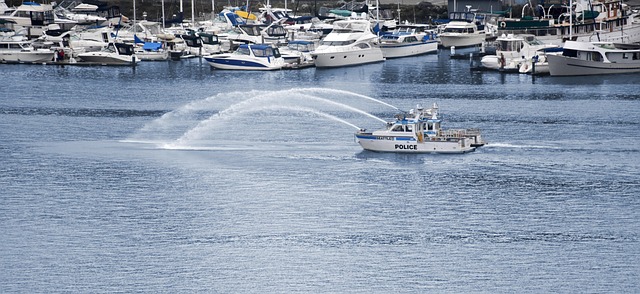Environmental Crime Trials address ecological and community harm through a blend of criminal law and environmental protection regulations. Consumer Protection Lawsuits emphasize compensation for ecosystem restoration and public health impacts. Successful prosecutions set precedents with substantial penalties. In these cases, jury trials offer powerful tools to redress corporate negligence or malicious practices, aiming to restore affected parties to their pre-harm condition through robust evidence and effective legal strategies. Holding corporations accountable requires navigating complex corporate structures and limited liability, leading to significant financial settlements or convictions that provide compensation and deter future misconduct.
Environmental Crime Trials are a critical aspect of holding corporations accountable for ecological damage. This article delves into the legal framework surrounding these trials, focusing on understanding the unique challenges and mechanisms involved. We explore compensation mechanisms within consumer protection lawsuits, where individuals play a vital role in driving corporate responsibility. By examining real-world cases, we uncover the impact and ongoing struggles in ensuring justice, with a specific emphasis on compensation in consumer protection lawsuits as a key driver of environmental accountability.
- Understanding Environmental Crime Trials: A Legal Perspective
- Compensation Mechanisms in Consumer Protection Cases
- Impact and Challenges in Holding Corporations Accountable
Understanding Environmental Crime Trials: A Legal Perspective

Environmental Crime Trials represent a unique intersection of criminal law and environmental protection. These trials delve into cases where individuals or corporations have violated environmental regulations, leading to significant harm on ecosystems and communities. From air pollution and water contamination to illegal dumping and habitat destruction, these crimes demand legal scrutiny. Understanding these trials involves recognizing the interplay between federal and state laws, as well as international agreements.
A key aspect in Environmental Crime Trials is the issue of compensation in Consumer Protection Lawsuits. Plaintiffs often seek not only punitive damages but also restitution for ecological restoration and community healing. This underscores the broader impact of environmental crimes on public health and safety. An unprecedented track record across the country shows that successful prosecutions can lead to substantial penalties, setting precedents for future cases.
Compensation Mechanisms in Consumer Protection Cases

In consumer protection cases, compensation mechanisms play a pivotal role in ensuring justice and deterring future environmental crimes. When individuals or communities suffer due to corporate negligence or malicious practices, legal systems offer avenues for redress through jury trials. These trials serve as powerful tools to achieve extraordinary results for affected parties. Compensatory damages are a common form of relief, aiming to restore the injured party to their pre-harm condition. This can include financial restitution for economic losses, reimbursement for medical expenses, and compensation for non-economic harm like pain and suffering.
Attorneys advocating for clients in such cases must demonstrate the extent of environmental damage and its impact on consumers. By presenting robust evidence and leveraging effective legal strategies, they can secure substantial settlements or verdicts that not only compensate victims but also send a clear message to perpetrators, discouraging similar misconduct in the future.
Impact and Challenges in Holding Corporations Accountable

Holding corporations accountable for environmental crimes is a complex task, but it’s crucial to ensure justice and compensation in consumer protection lawsuits. These cases often involve massive ecological damage and affected communities seeking redress. The impact of successful trials can be profound, setting precedents for future cases and promoting corporate responsibility. However, challenges abound. Corporations often employ sophisticated legal strategies to avoid indictment, including complex corporate structures and limited liability. This makes it difficult to attribute direct blame and secure substantial compensation for victims.
Despite these hurdles, experienced attorneys can navigate these complexities and achieve extraordinary results. By strategically targeting both the corporate and individual clients involved, effective legal representation can lead to significant financial settlements or convictions. Such outcomes not only provide much-needed compensation but also serve as a powerful deterrent, encouraging businesses to prioritize environmental stewardship over profit at all costs.
Environmental crime trials play a pivotal role in ensuring corporate accountability for ecological damage. By examining legal frameworks, compensation mechanisms like those in consumer protection lawsuits, and navigating associated challenges, we can foster more effective deterrence and restitution. Understanding these processes is crucial for upholding environmental justice and promoting sustainable practices in the corporate sector. Through robust legal strategies, communities can secure not only monetary compensation for environmental harm but also significant changes to corporate behavior, ensuring a cleaner and safer future.






